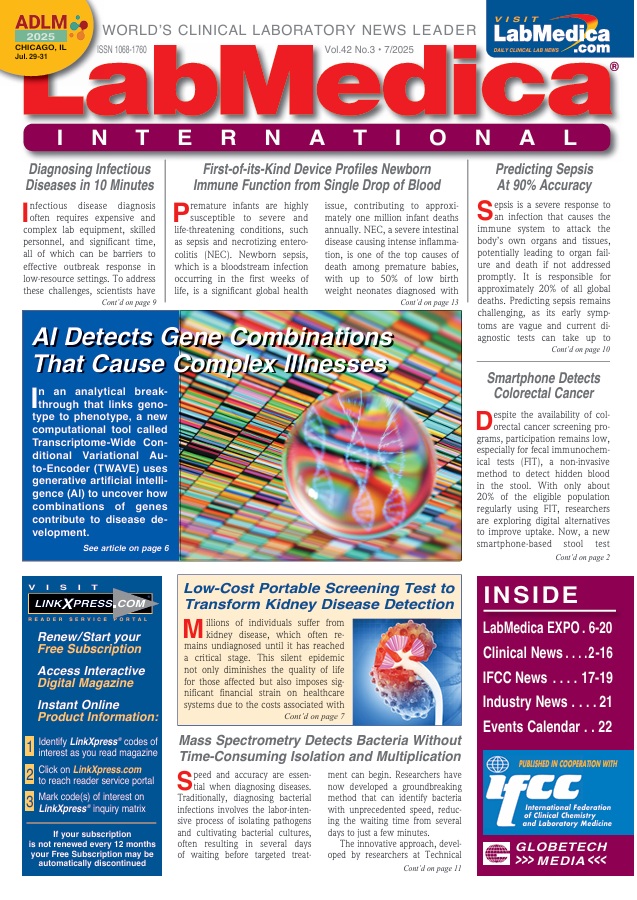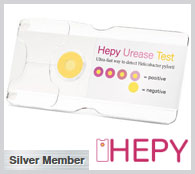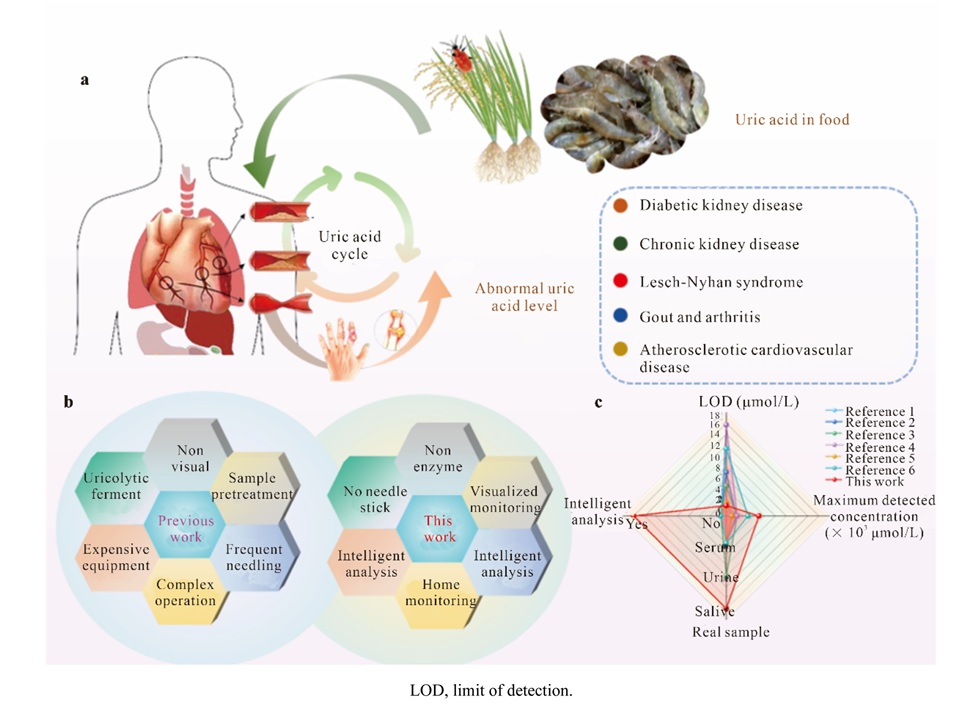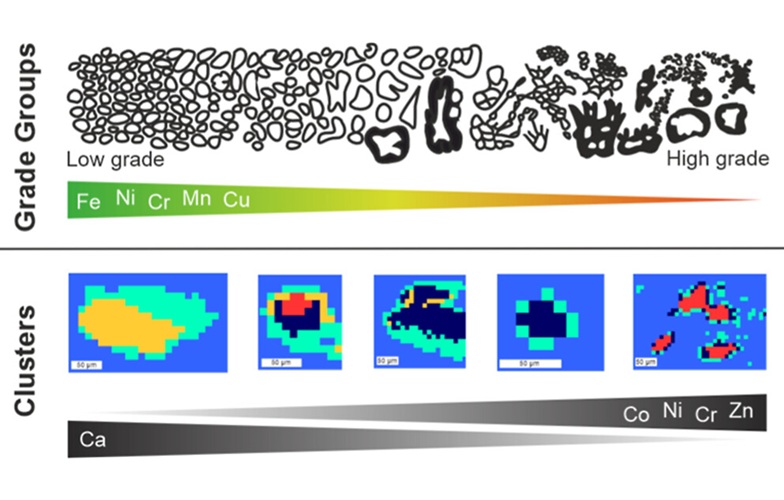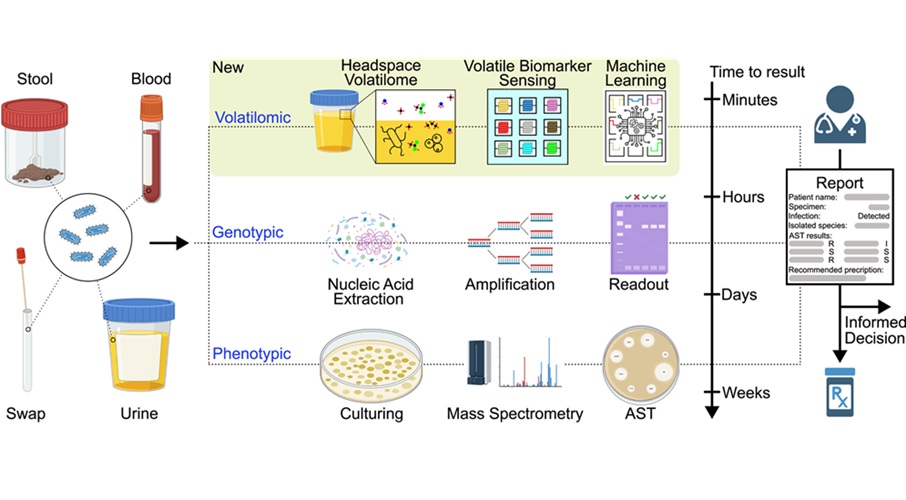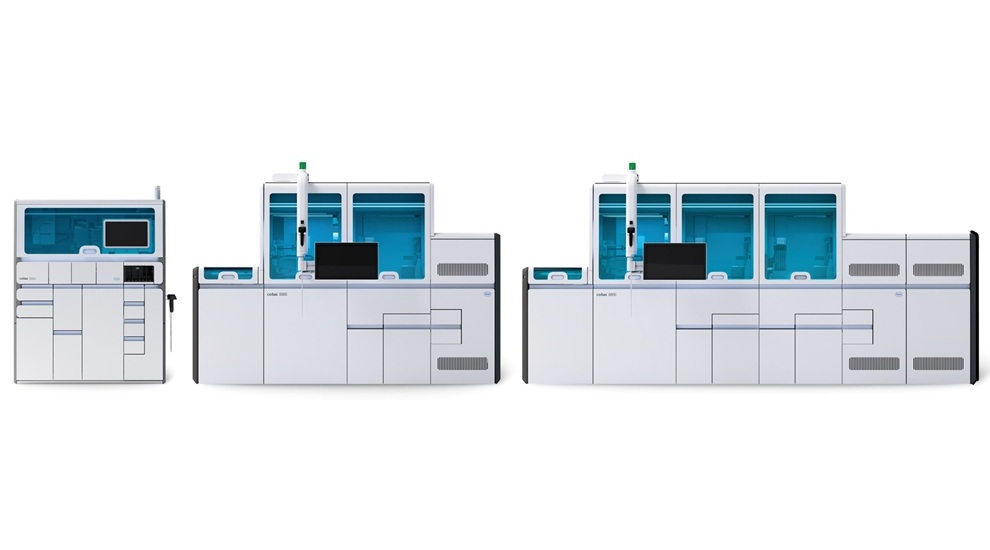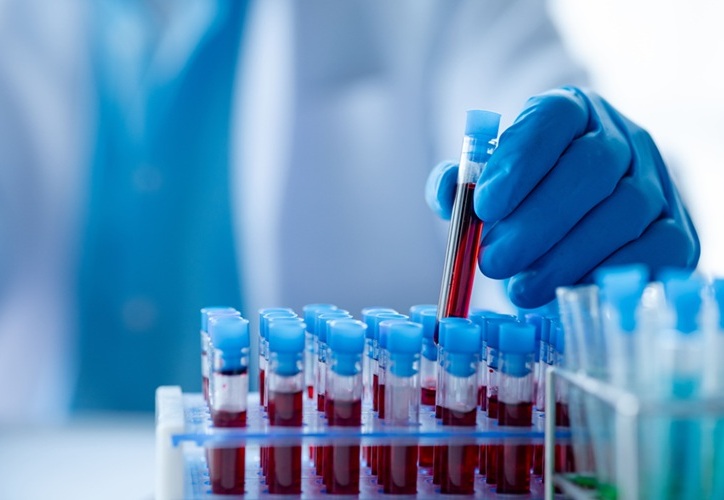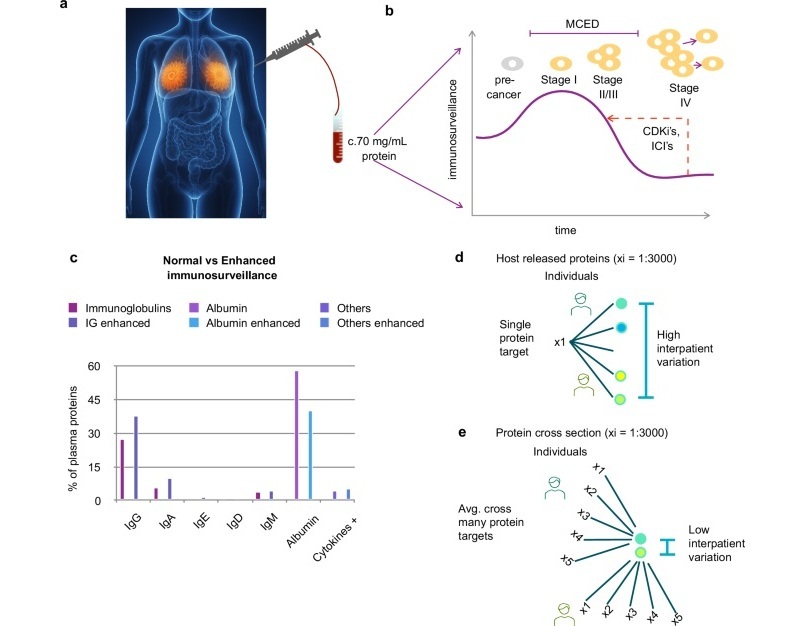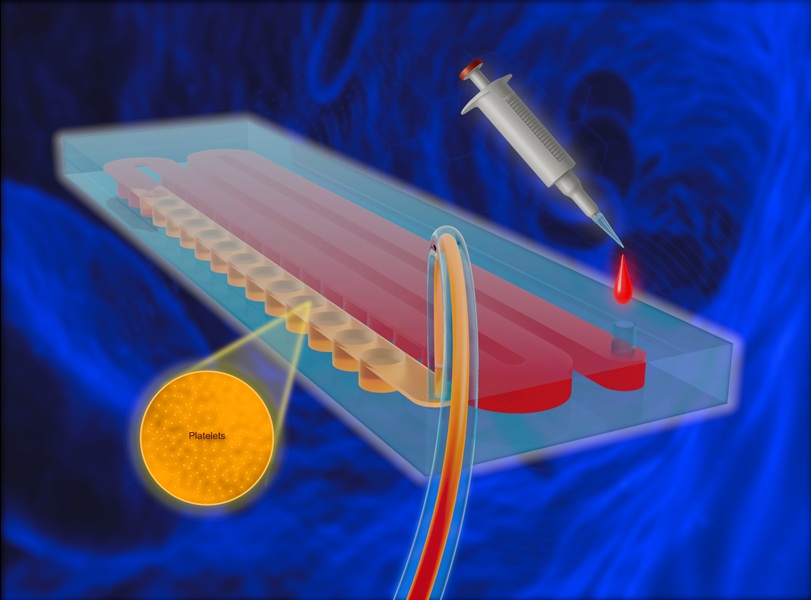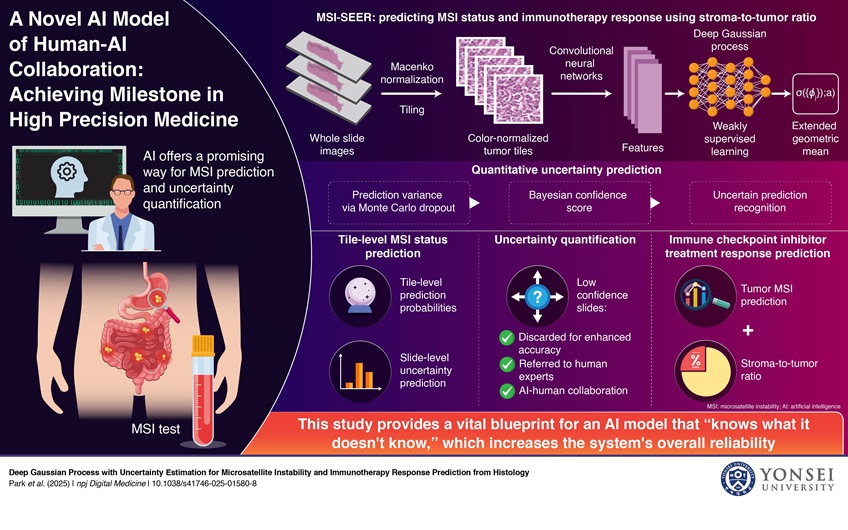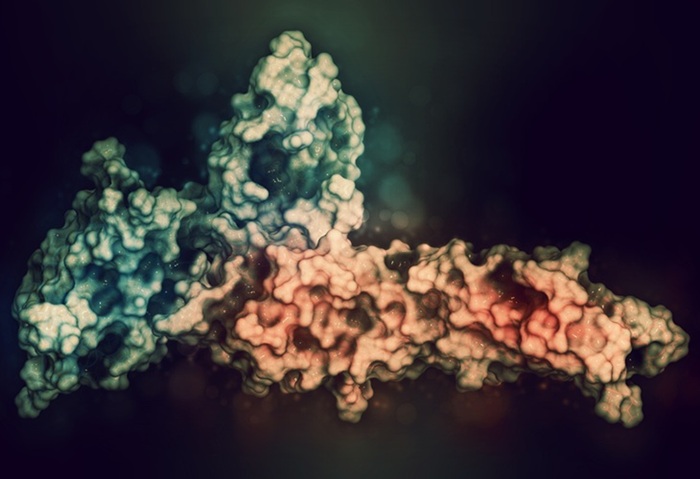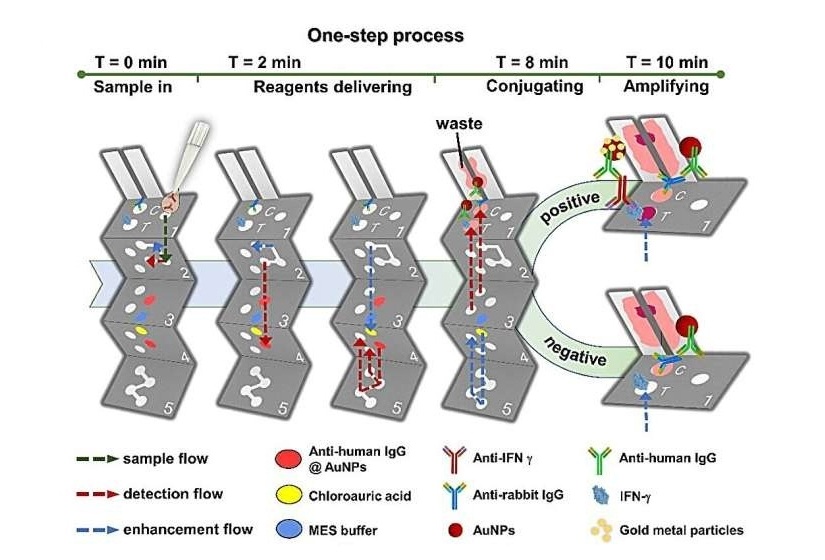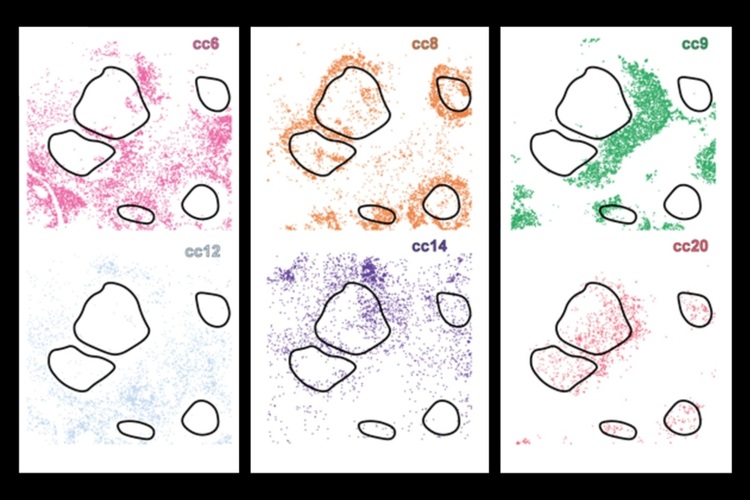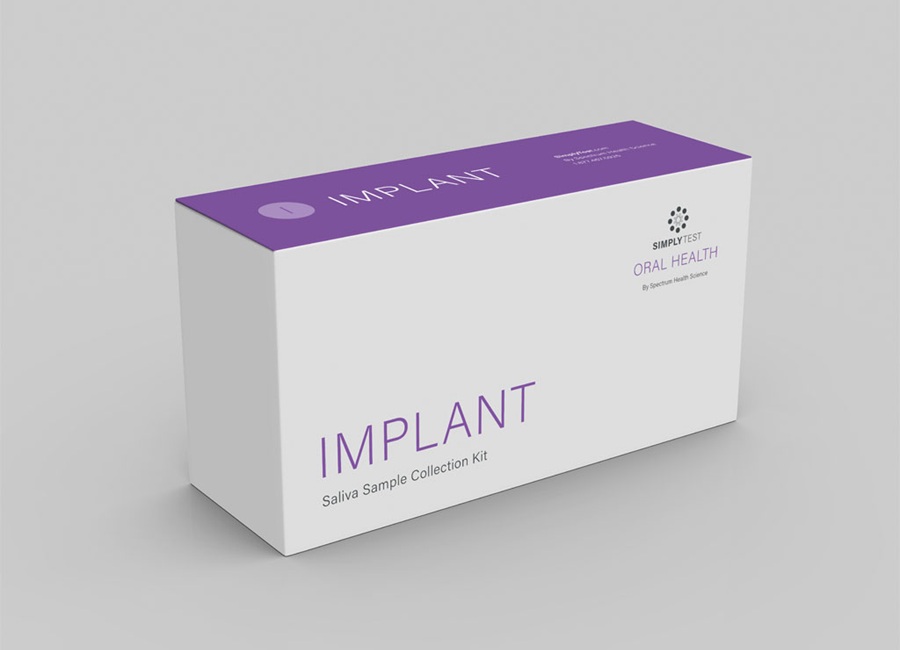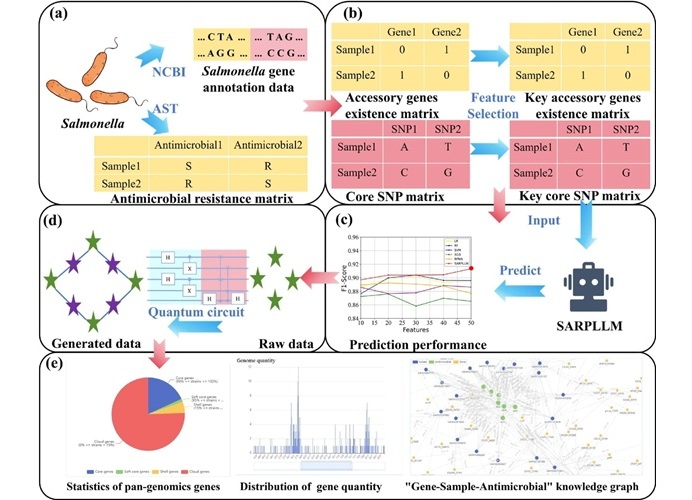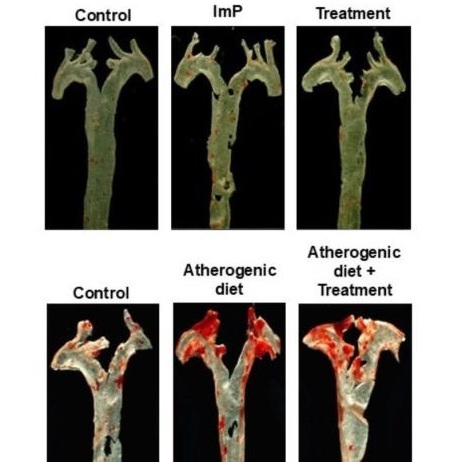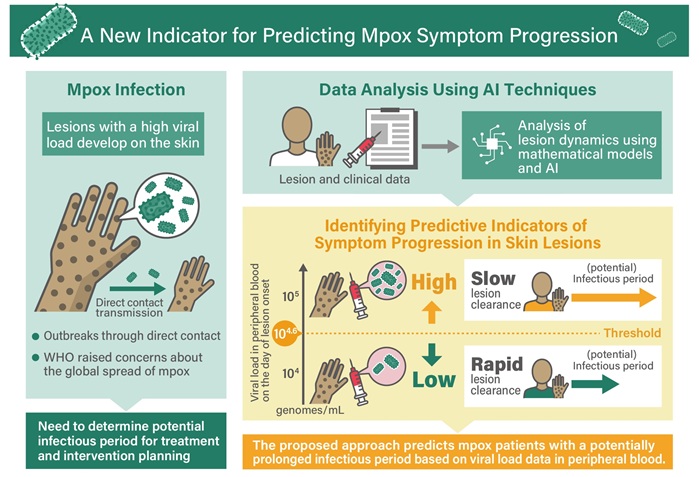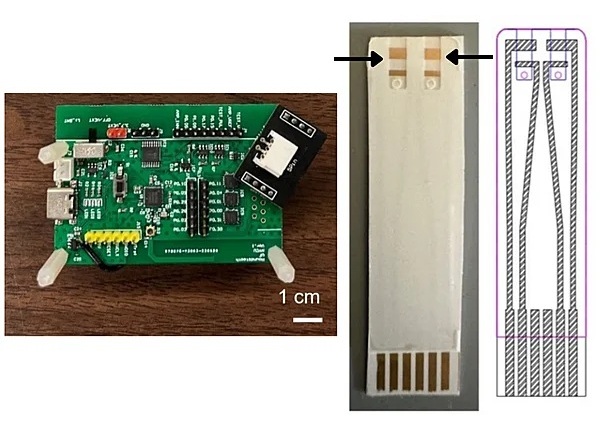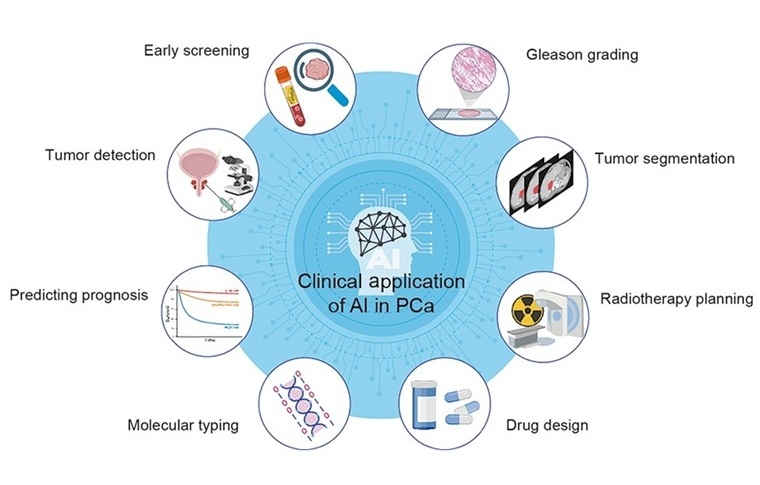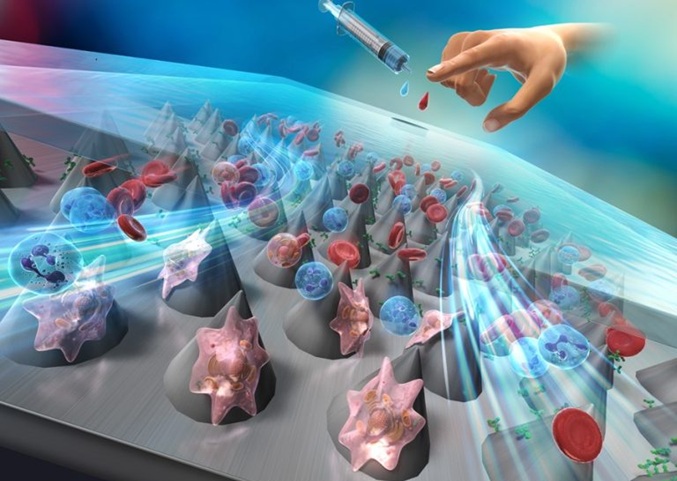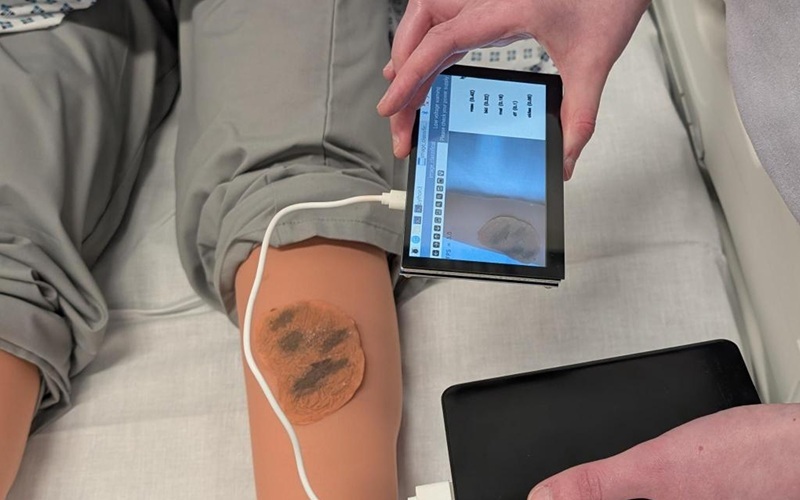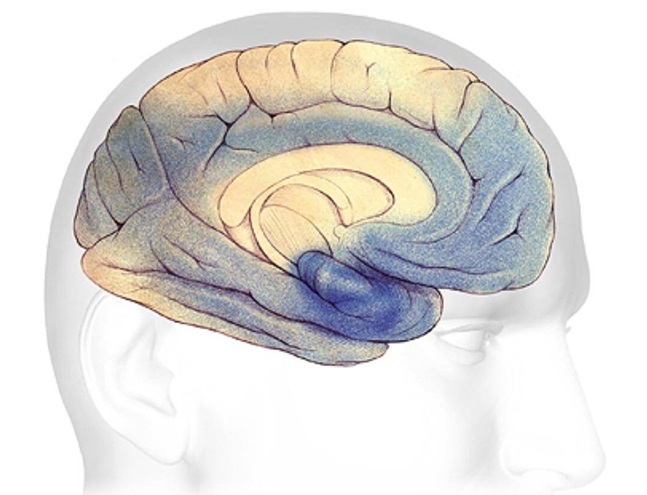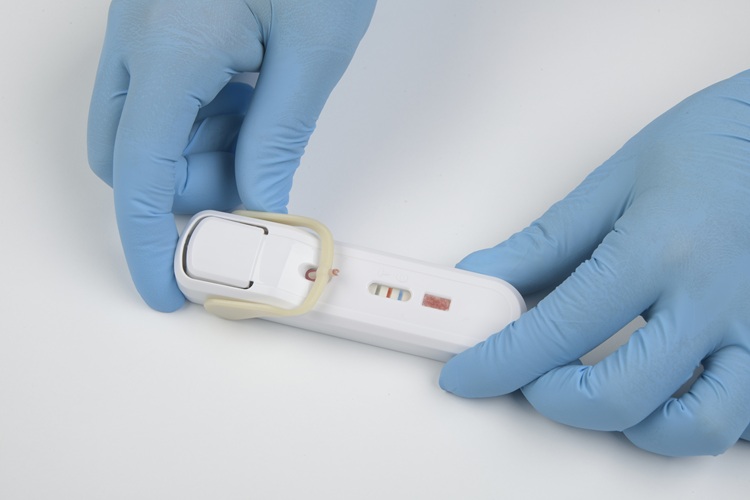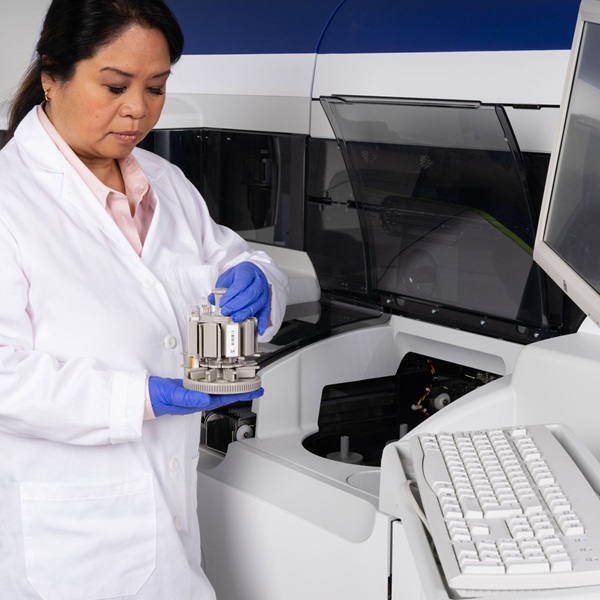Expo
ADLM
view channel
view channel
view channel
view channel
view channel
view channel
view channel
view channel
view channel
Clinical Chem.Molecular DiagnosticsHematologyImmunologyMicrobiology
TechnologyIndustry
Events
Webinars

- Prostate Cancer Markers Based on Chemical Make-Up of Calcifications to Speed Up Detection
- Breath Test Could Help Detect Blood Cancers
- ML-Powered Gas Sensors to Detect Pathogens and AMR at POC
- Saliva-Based Cancer Detection Technology Eliminates Need for Complex Sample Preparation
- Skin Swabs Could Detect Parkinson’s Years Before Symptoms Appear
- New Test Provides Accurate PCR results for Four Most Common Respiratory Viruses
- Routine Blood Tests Could Enable Early Detection of COPD
- New Test Detects Early-Stage Solid Tumors Using Only Blood Sample
- AI-Enhanced Cell-Based Blood Tests to Improve Predictive Accuracy for Complex Transplant Outcomes
- Non-Invasive Blood Test for Endometriosis Could Replace Surgical Procedures
- Disposable Cartridge-Based Test Delivers Rapid and Accurate CBC Results
- First Point-of-Care Heparin Monitoring Test Provides Results in Under 15 Minutes
- New Scoring System Predicts Risk of Developing Cancer from Common Blood Disorder
- Non-Invasive Prenatal Test for Fetal RhD Status Demonstrates 100% Accuracy
- WBC Count Could Predict Severity of COVID-19 Symptoms
- Precision Tool Predicts Immunotherapy Treatment Failure in Melanoma Patients
- Paper-Based Device Accurately Detects Immune Defects in 10 Minutes
- New AI System Uncovers Hidden Cell Subtypes to Advance Cancer Immunotherapy
- Evolutionary Clinical Trial to Identify Novel Biomarker-Driven Therapies for Metastatic Breast Cancer
- Groundbreaking Lateral Flow Test Quantifies Nucleosomes in Whole Venous Blood in Minutes
- New Platform Leverages AI and Quantum Computing to Predict Salmonella Antimicrobial Resistance
- Early Detection of Gut Microbiota Metabolite Linked to Atherosclerosis Could Revolutionize Diagnosis
- Viral Load Tests Can Help Predict Mpox Severity
- Gut Microbiota Analysis Enables Early and Non-Invasive Detection of Gestational Diabetes
- Credit Card-Sized Test Boosts TB Detection in HIV Hotspots
- Cutting-Edge AI Algorithms Enable Early Detection of Prostate Cancer
- New Microfluidic System Enables Early Cancer Diagnosis Using Simple Blood Tests
- AI to Transform Skin Cancer Diagnosis in Remote Areas
- Statistical Tool Identifies Genetic Changes Behind Neurological Conditions
- Microneedle Skin Patch Detects Melanoma Without Biopsy or Blood Draw
- IFCC WorldLab 2026 To Be Held in India on October 25-29
- PHASE Scientific and Lumos Diagnostics Partner on Rapid POC Test for Bacterial Respiratory Infection
- QuidelOrtho and BÜHLMANN Collaborate on Gastrointestinal Biomarker Tests
- BD Biosciences & Diagnostic Solutions to Merge with Waters
- 2025 COMPAMED Innovation Forum Highlights Pioneering Work in Cancer Diagnostics
- Gene Panel Predicts Disease Progession for Patients with B-cell Lymphoma
- New Method Simplifies Preparation of Tumor Genomic DNA Libraries
- New Tool Developed for Diagnosis of Chronic HBV Infection
- Panel of Genetic Loci Accurately Predicts Risk of Developing Gout
- Disrupted TGFB Signaling Linked to Increased Cancer-Related Bacteria
- Generative AI Demonstrates Expert-Level Pathological Assessment of Lung Cancer
- Saliva Test to Enable Early Detection of Diabetes and Obesity
- Novel Method To Analyze Tumor Growth Rates Helps Tracks Progression Between Diagnosis and Surgery
- Novel Technology Detects Key Mutations from Blood Samples in Metastatic Colorectal Cancer Patients
- Self-Driving Microscope Tracks and Analyzes Misfolded Protein Aggregation in Real Time

 Expo
ADLM
Expo
ADLM
- Prostate Cancer Markers Based on Chemical Make-Up of Calcifications to Speed Up Detection
- Breath Test Could Help Detect Blood Cancers
- ML-Powered Gas Sensors to Detect Pathogens and AMR at POC
- Saliva-Based Cancer Detection Technology Eliminates Need for Complex Sample Preparation
- Skin Swabs Could Detect Parkinson’s Years Before Symptoms Appear
- New Test Provides Accurate PCR results for Four Most Common Respiratory Viruses
- Routine Blood Tests Could Enable Early Detection of COPD
- New Test Detects Early-Stage Solid Tumors Using Only Blood Sample
- AI-Enhanced Cell-Based Blood Tests to Improve Predictive Accuracy for Complex Transplant Outcomes
- Non-Invasive Blood Test for Endometriosis Could Replace Surgical Procedures
- Disposable Cartridge-Based Test Delivers Rapid and Accurate CBC Results
- First Point-of-Care Heparin Monitoring Test Provides Results in Under 15 Minutes
- New Scoring System Predicts Risk of Developing Cancer from Common Blood Disorder
- Non-Invasive Prenatal Test for Fetal RhD Status Demonstrates 100% Accuracy
- WBC Count Could Predict Severity of COVID-19 Symptoms
- Precision Tool Predicts Immunotherapy Treatment Failure in Melanoma Patients
- Paper-Based Device Accurately Detects Immune Defects in 10 Minutes
- New AI System Uncovers Hidden Cell Subtypes to Advance Cancer Immunotherapy
- Evolutionary Clinical Trial to Identify Novel Biomarker-Driven Therapies for Metastatic Breast Cancer
- Groundbreaking Lateral Flow Test Quantifies Nucleosomes in Whole Venous Blood in Minutes
- New Platform Leverages AI and Quantum Computing to Predict Salmonella Antimicrobial Resistance
- Early Detection of Gut Microbiota Metabolite Linked to Atherosclerosis Could Revolutionize Diagnosis
- Viral Load Tests Can Help Predict Mpox Severity
- Gut Microbiota Analysis Enables Early and Non-Invasive Detection of Gestational Diabetes
- Credit Card-Sized Test Boosts TB Detection in HIV Hotspots
- Cutting-Edge AI Algorithms Enable Early Detection of Prostate Cancer
- New Microfluidic System Enables Early Cancer Diagnosis Using Simple Blood Tests
- AI to Transform Skin Cancer Diagnosis in Remote Areas
- Statistical Tool Identifies Genetic Changes Behind Neurological Conditions
- Microneedle Skin Patch Detects Melanoma Without Biopsy or Blood Draw
- IFCC WorldLab 2026 To Be Held in India on October 25-29
- PHASE Scientific and Lumos Diagnostics Partner on Rapid POC Test for Bacterial Respiratory Infection
- QuidelOrtho and BÜHLMANN Collaborate on Gastrointestinal Biomarker Tests
- BD Biosciences & Diagnostic Solutions to Merge with Waters
- 2025 COMPAMED Innovation Forum Highlights Pioneering Work in Cancer Diagnostics
- Innovative New Technology to Provide Plastic-Exterior Components with Glass Interior, Presented at AACC 2015
- Portable Molecular Diagnostics System Unveiled At 2015 AACC
- Expanded Steroid Control Launched at the 2015 AACC Annual Meeting
- Eco-Friendly Immunoassay Reagents Featured at AACC 2015
- Low Cost Point-of-Care DNA Amplification Test for Chlamydia Infection Demonstrated at the 2015 AACC Annual Meeting
- Derived Exosomal Protein Biomarkers in Alzheimer’s Disease Diagnosis
- New Biochip Array Developed for ApoE4 Classification
- Cell-Free DNA Identifies Liver Transplant Patients with Acute Rejection
- New Method Tested for Early Diagnosis Pediatric Diabetic Nephropathy
- FDA-Cleared Automated Cell Counter for CSF Launched at AACC 2016
- Mesa Biotech Showcases PCR Testing Platform at Clinical Expo
- Abbott Diagnostics Displays Alinity Family of Systems
- Roche Diagnostics Highlights Latest Clinical Lab Solutions at AACC
- Sysmex Highlights Innovations in Flow Cytometry, Urinalysis and Hematology
- Ortho Clinical Diagnostics Unveils Next-Gen Analyzer at Lab Show
- Gene Panel Predicts Disease Progession for Patients with B-cell Lymphoma
- New Method Simplifies Preparation of Tumor Genomic DNA Libraries
- New Tool Developed for Diagnosis of Chronic HBV Infection
- Panel of Genetic Loci Accurately Predicts Risk of Developing Gout
- Disrupted TGFB Signaling Linked to Increased Cancer-Related Bacteria
- All Virtual 2020 AACC Uses Artificial Intelligence to Connect Exhibitors and Attendees
- Greiner Bio-One Showcases VACUETTE Virus Stabilization Tube for Transport and Storage of COVID-19 Swab Samples
- Stago Diagnostics Transforms Hemostasis with Innovations at AACC 2020 Virtual Event
- Roche Announces Newest Additions to Cobas Family of Analyzers at AACC 2020 Virtual Event
- Seegene Highlights High-Throughput, Single Tube 8-Plex RT-PCR Test for Flu A, Flu B, RSV and COVID-19 with Dual Internal Controls
- New Test that Measures Antibodies in Girls Who Have Received HPV Vaccine Presented at AACC 2021
- Novel Insights on COVID-19 Vaccines and Virus Evolution, AI in the Clinic, and Miniaturization of Diagnostic Platforms Explored at AACC 2021
- Seegene Unveils New STARlet-AIOS All-in-One Solution for All Molecular Testing at AACC 2021
- Group K Diagnostics Demonstrates KromaHealth Kit that Enables Lab-Quality Results at Point-of-Care
- Fluxergy Introduces First-of-Its-Kind Multi-Modal Laboratory Platform That Diagnoses COVID-19 On-Site in 60 Minutes
- Faster Method Diagnoses Pediatric Urinary Tract Infections
- Tianlong Showcases Integrated PCR Lab Solutions at AACC 2022
- Cellavision Introduces New Workflow Solution for Low-Volume Hematology Labs at AACC 2022
- Advanced Instruments Introduces New Automated Osmometer at AACC 2022
- Innovative Smartphone and AI-Based Tests Featured at AACC 2022
- Ground-Breaking Phage-Based Diagnostic Kit for Laboratory Tuberculosis Testing Presented at AACC 2023
- Laboratory Experts Show How They Are Leading the Way on Global Trends
- Unique Competition Focuses on Using Data Science to Forecast Preanalytical Errors
- Best Approach to Infectious Disease Serology Testing for Laboratorians and Clinicians Discussed at AACC 2023
- Breaking Research Throws Light on COVID, Flu, and RSV Co-Infections
- Cytovale Demonstrates 8-Minute Sepsis Diagnostic Test
- EKF Diagnostics Showcases Range of Diabetes and Hematology POC Devices
- Inpeco Launches Next-Generation Total Lab Automation System
- Tianlong Showcases Latest Products in Molecular Diagnostics, Biochemistry, Immunology and POC Testing
- Messe Düsseldorf Promotes International “MEDICAlliance” Portfolio at ADLM 2024
- Breaking Research to Make Testing for Gynecologic Cancers More Equitable and Accurate
- Clinical Data on New Assay Panel Demonstrates Accurate Assessment of Pancreatic Cancer Risk
- AI-Powered Lyme Disease Diagnostic Test Debuts at ADLM 2025
- New Study Reveals Rapid Sepsis Test Drives 56% Boost in ED Discharges
- First-Ever Fingerstick Host-Response Test Rapidly Differentiates Between Bacterial and Viral Infections
- Generative AI Demonstrates Expert-Level Pathological Assessment of Lung Cancer
- Saliva Test to Enable Early Detection of Diabetes and Obesity
- Novel Method To Analyze Tumor Growth Rates Helps Tracks Progression Between Diagnosis and Surgery
- Novel Technology Detects Key Mutations from Blood Samples in Metastatic Colorectal Cancer Patients
- Self-Driving Microscope Tracks and Analyzes Misfolded Protein Aggregation in Real Time


